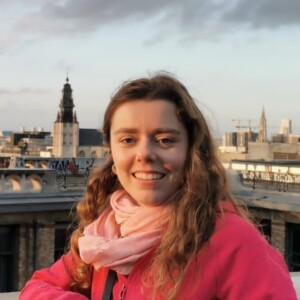
Paula Martin De Prado
University of Warwick
Project
Microbial sunscreens for better life
Supervisors
- Dr. Chris Corre
- Dr. Vasilios Stavros
PhD Summary
Many of the sunscreen filters that we currently use can be toxic for us and the environment. An alternative to these filters could be mycosporine-like amino acids (MAAs), which are small molecules produced by different kinds of organisms to protect themselves from sun damage by absorbing UV radiation. I will be working in the production of MAAs in cyanobacteria and my approach will be to develop cultivation strategies for cyanobacteria to evolve and produce novel MAAs or known MAAs with increased yields.
Previous activity
Before starting the PhD, I did my undergraduate degree in Biotechnology at the University of the Basque Country and a master’s degree in Applied Microbiology at the Autonomous University of Barcelona in Spain. Then I did a six month internship as a quality control assistant in a small company that produces disinfectants.
Why did you choose doctoral research?
After working in quality control, I realised that I preferred research, and as I have always been interested in life sciences, especially in microbiology and how we can use it to improve public health and the environment, I thought a PhD in a topic like this was a great opportunity to start working in research.
Why did you choose CENTA?
I chose this studentship because I was really interested in the project and in the fact that we are provided with training in a wide variety of areas and the opportunity to do industrial placements. Also, the financial support was the same for EU and UK students, which was not the case for other studentships.
Future plans
I hope studying here will open doors for me in multiple areas, since I still don’t know what career I want to pursue after the PhD.
